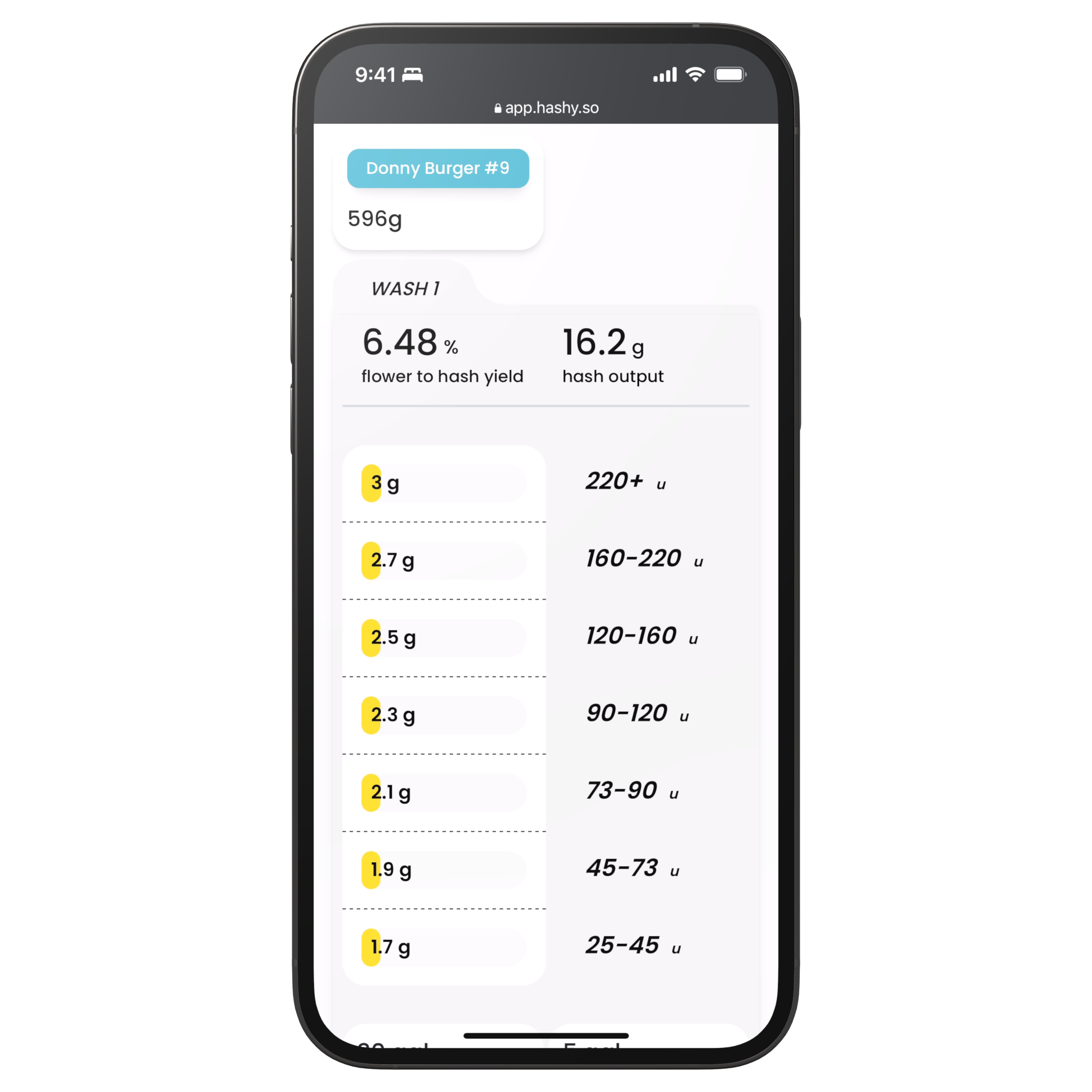

Today, we're taking you behind the scenes of a phenotype comparison involving two standout strains from a Donny Burger pheno hunt one of our friends recently completed.
He was gifted a few cuts and narrowed it down to the final two hashing candidates from this run – Donny Burger #9 and #23.
We kept everything the same from chop to wash in pursuit of isolating the expressions of each DB phenotype and their differences.
Let's begin by analyzing the yield results from a starting base of 250g for both strains.

This strain presented us with a steady yield distribution across the micron spectrum. 160u+ was pretty planty and anything 45u and below was also pretty planty. Typical yield, nothing standout. Would be good for a mixed micron product because the 74u/90u/120u was all decent quality.
The total yield for Donny Burger #9 was a respectable 16.2g, translating into a 6.48% return. These numbers reflect the strain's characteristic ability to provide a stable return across the entire micron range.

This phenotype yielded a slightly lower total of 15.8g (6.32% return). However, it yielded way more hash in the 90u -- over 65% more. And yes there are a ton of variables that could influence head size, but keep in mind these were grown and harvested under the exact same conditions.
Though Donny Burger #9 might seem like the more productive strain at first glance due to its slightly higher overall yields. But the in-depth analysis reveals that #23 could be a more viable production strain because you're opening up doors to more premium rosin SKUs and even some full melt.
On the flipside, maybe your customer base only smokes full spec and the extra yields you get from #9 would increase revenue more than the opportunity for a higher tier SKU made from just 90u.
It's not all about the yields if your customers don't smoke certain products. Selecting the right phenos is a balancing act of data and product viability in your specific market.
That said, it helps to have the numbers and you can make take a more informed approach to specific SKU creation. In this case, our friend decided to go with the Donny Burger #23 and scaled it up to a full room after running this test wash. The remainder of the #9 that was frozen will be washed and kept for head stash as a mixed micron cold cure.
Thanks for reading and please share your pheno comparisons with us -- want to see what you guys are cooking up and how you decide to go after specific SKUs.
If you want to take our app for a spin, you can sign up free here: app.hashy.so
All feedback is welcome and much appreciated ❤️